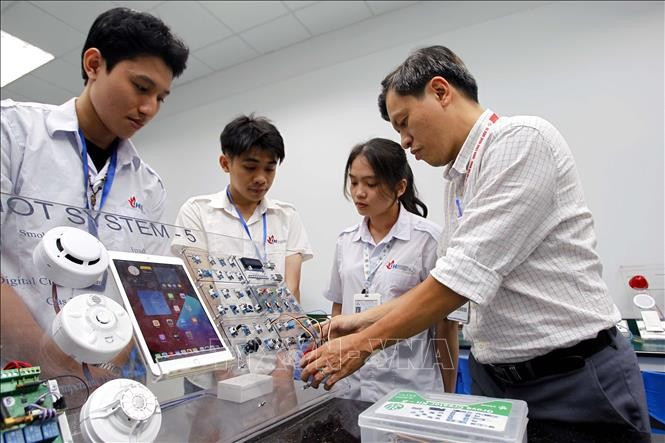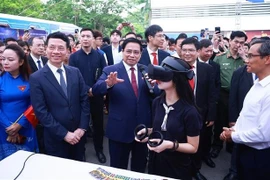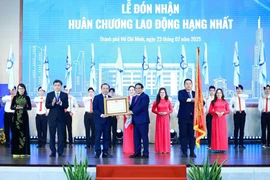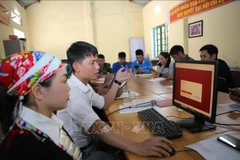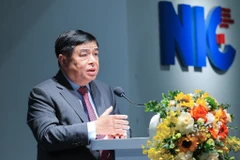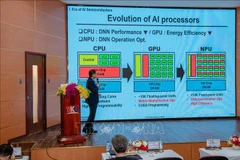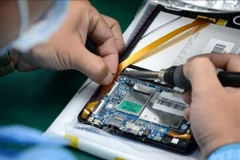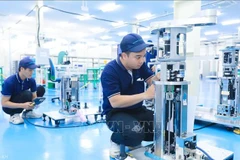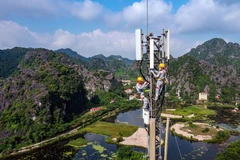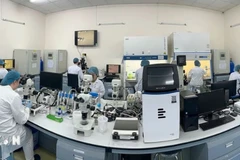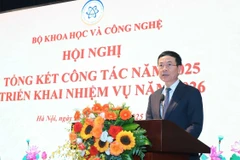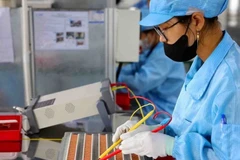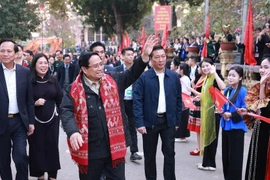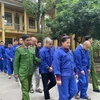Hanoi (VNA) – Scientific research within higher education institutions plays a pivotal role not only in enhancing the quality of teaching but also in generating new knowledge that contributes to the sustainable development of the nation.
With increased investment in both human resources and infrastructure, particularly laboratories, research activities at universities have seen significant progress in recent years.
Launched in February last year, the Vietnam National University, Ho Chi Minh City (VNU-HCM)’s programme on attracting, retaining, and developing outstanding young scientists and leading researchers has to date drawn 23 scientists to work across its universities, institutes, and research centres. Notably, seven of these are PhD holders from top 100 global universities.
Building on this success, in February this year, the VNU-HCM announced its visiting professorship programme, which sets an ambitious target of appointing 100 visiting professors by 2030. These will be world-leading scientists and experts, with priority given to fields such as biotechnology, biomedical sciences, semiconductor technology, artificial intelligence, new energy, and advanced logistics.
In tandem with these initiatives, the scientific community has expressed high expectations for Resolution No. 57-NQ/TW, issued by the Politburo on December 22, 2024, and outlining a strategic breakthrough in the development of science, technology, innovation, and national digital transformation. The document is anticipated to create a fresh impetus for research activities.
Since its establishment in 2013, the biotechnology laboratory at the International University under the VNU-HCM has received an investment of approximately 40 billion VND (1.54 million USD). The laboratory currently focuses on pioneering research in global reprogramming techniques and the conservation of endangered animal genetic resources.
Associate Prof. Dr. Nguyen Van Thuan, Dean of the Faculty of Biotechnology at the International University, shared that the lab is presently staffed by four PhD holders, 12 master's students, and regularly hosts between 40-60 undergraduate students undertaking final-year research projects.
“We are heartened by the positive signals from Resolution 57. These breakthroughs will strongly boost scientific research activities across universities,” Thuan remarked.
Before officially becoming a designated academic discipline in 2024, microchip training had already been implemented for over two decades at the University of Technology under VNU-HCM. Its laboratory for microchips and high-frequency systems, established in 2013, has been instrumental in designing high-frequency microchips. Through various research projects and collaborations, the lab has successfully transferred dozens of chip designs to major domestic and international partners.
Dr Huynh Phu Minh Cuong, Deputy Dean of the University of Technology’s Faculty of Electrical and Electronics Engineering, expressed his optimism about the new resolution, which he said has resolved many bottlenecks, from granting autonomy to research groups in managing funding, to recognising the inherent risks of large-scale research projects. These changes empower scientists to take bold steps and contribute more significantly to the advancement of national science and technology, he noted./.
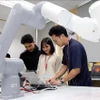
HCM City's universities go global to meet tech demands
Universities are chasing global accreditation to align their curricula with international benchmarks, ensuring graduates can hold their own worldwide.
